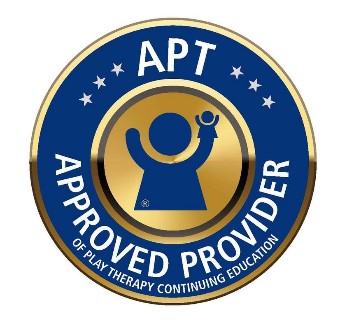Facilitating Familial Encouraging Connection Therapy (FECT) with Parents/Caregivers of Play Therapy Clients
Become a facilitator of training for parents/caregivers in non-directive play therapy skills and Adlerian concepts to use in their relationships with their children.
Description
This class is designed to teach you how to facilitate Familial Encouraging Connection Therapy (FECT)--a program based on Adlerian psychological theory designed to teach parents and caregivers an active method of playing with their children to build connection, communication, and understanding. FECT consists of a series of 10-12 instructional sessions and structured homework assignments, where you, as the licensed facilitator, will help parents/caregivers (a) explore their own attitudes and experiences with play; (b) learn and practice basic non-directive play therapy skills that they can use when building a strong connection with their child/children; (c) explore their own rules about children, play, and parenting/caregiving; and (d) learn new tools for deepening their understanding of children’s behaviors and personalities as a way for them to better understand their child and enhance their ability to provide emotional support to their child/children.
 18 Non-Contact CE hours (18 hours on Play Therapy Special Topics)
18 Non-Contact CE hours (18 hours on Play Therapy Special Topics)
APT Approved Provider 99-055
 League of Extraordinary Adlerian Play Therapists (LEAPT) has been approved by NBCC as an Approved Continuing Education Provider, ACEP No. 7402. Programs that do not qualify for NBCC credit are clearly identified. League of Extraordinary Adlerian Play Therapists (LEAPT) is solely responsible for all aspects of the programs.
League of Extraordinary Adlerian Play Therapists (LEAPT) has been approved by NBCC as an Approved Continuing Education Provider, ACEP No. 7402. Programs that do not qualify for NBCC credit are clearly identified. League of Extraordinary Adlerian Play Therapists (LEAPT) is solely responsible for all aspects of the programs.
Objectives
By the end of this program, participants will be able to…
- Describe the purpose of the Familial Encouraging Connection Therapy (FECT).
- Describe 2 ways that play is important for children.
- Describe 2 ways that play is important for parenting/caretaking.
- Explain why it is important for family members to make “deposits” in the family’s Positive Shared Experience “Bank.”
- Describe how to help parents/caregivers explore the family atmosphere and rules about children and parenting/caregiving in their own families-of-origin
- Describe how to facilitate parents/caregivers exploring the family atmosphere and rules about children and parenting/caregiving in their current family.
- Explain how to facilitate parents/caregivers exploring the birth order in their family-of-origin and their current family has had an impact on their relationship with the children in the family.
- Discuss how to facilitate parents/caregivers consider how their culture has had an impact about their rules and beliefs about parenting/caregiving and about children.
- Explain each of the 4 elements of the Four-Fold-Way and how they apply to parent/child relationships.
- Name 2 methods for helping parents/caregivers identify what is important to their child/children.
- Describe 2 ways parents/caregivers can learn about how their children express thoughts, feelings, and attitudes.
- Explain why it is important for parents/caregivers to explore their feelings about sharing power with their children in a play therapy session.
- Describe how to help parents explore logistical considerations related to at-home play therapy sessions, such as deciding on a location, length, and frequency of play sessions; kinds of toys needed; storage of toys between sessions, etc.
- Describe the following non-directive play therapy skills: (a) restating content, (b) tracking the play, (c) reflecting feelings, (d) giving choices, (e) encouraging, (f) and returning responsibility.
- Explain how to teach the following non-directive play therapy skills to parents/caregivers: (a) restating content, (b) tracking the play, (c) reflecting feelings, (d) giving choices, (e) encouraging, (f) and returning responsibility.
- Demonstrate how to teach parents/caregivers the 4-step limit-setting process for a play therapy session with a child.
- Describe how to teach parents/caregivers how to decide what to play with a child in a play therapy session.
- Describe how to teach parents/caregivers at least 2 different ways to assess children’s mastery of each of the Crucial Cs.
- Describe how to teach parents/caregivers 5 ways to use play to foster a child’s Crucial Cs.
- Explain how to teach parents/caregivers to make guesses (or share hypotheses) about the child goal of misbehavior during a play therapy session.
- Describe 3 ways parents/caregivers can handle misbehavior during a play therapy session.
- Describe how to facilitate parents’/caregivers’ exploration of their own temperaments and the temperaments of their children.
- Describe 6 structured activities they can teach parents/caregivers as playful ways to build relationships with their children.
- Explain the 4 mistaken goals of adults when interacting with children and describe how mistaken goals that might impact parents/caregivers.
Prerequisites
Beginning Adlerian Play Therapy*
* As an alternative to the full week "Beginning," you may take the theory class, "Adlerian Concepts Used in Play Therapy and Counseling: A Primer" and the class on basic skills: "Basics of Non-directive Play Therapy Skills." You may opt out of the skills class if you have other training in play therapy skills,